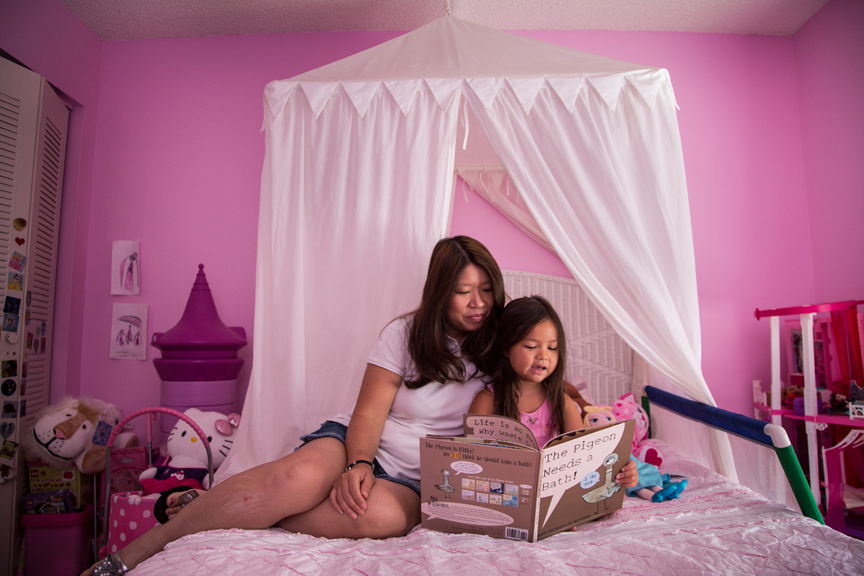- Education
- Health
- Parenting
Make it fun! Show your child that words are everywhere

In this article, you’ll find answers to questions like:
1. How to learn words?
2. How to make it fun?
3. What are some tips?
You already know that reading is important for learning, but it’s also a great way to show your child love and attention. If you spend a few minutes every day with your children and a book, they will remember it their entire lives.
“When my mother read 'The Gingerbread Man' to me, she couldn’t skip anything because I knew all the pages,” says Debbie Battles, former director of Elementary Education at the School District of Palm Beach County. “I still know every word: ‘You can’t catch me, I’m the gingerbread man!’ It’s a memory of my mother that I will always have.”
1. HOW TO LEARN WORDS?
Just like Battles’s infatuation with the gingerbread man, children often want to read the same book over and over. You may get sick of it, but children memorize words by their sounds even before they start reading by themselves, Battles says.
Singing songs and reciting nursery rhymes are other ways to learn words by hearing them, says Catherine Tedesco, the school district’s former literacy manager for Elementary Education. Later, when we see words on the page, we remember them from the songs and rhymes: “Three blind mice!”
2. HOW TO MAKE IT FUN?
Words are everywhere — on the bus, in your car, in a store. Teach your child to notice words wherever you find them. You can make anything you do with your child an opportunity to learn new words, Battles says.
For example, tell your children in the grocery store, “Show me foods that begin with the letter D. Keep it interesting with other letters, with colors and numbers. You can play “I Spy” while driving. Your children will be too busy reading to ask, 'Are we there yet?' "
Also let your child see you reading. Go to the library and get a card for everyone in the family. Let your children pick their own books. Plus, the library offers free activities for all ages, from play groups to after-school homework help.
Build reading through your child’s tendencies and interests. “At the zoo, my favorite part was seeing the monkeys,” Battles says. “Let your child dictate a simple sentence. It’s their words. If you record what they say, they can read it and feel like they’re a reader.”
Books and songs are not the only way to learn words. If your children draw, ask them to tell you a story about them. Then you can write words to identify the drawing: “sun,” “house” or “Dad.”
3. WHAT ARE SOME TIPS?
• Set aside a quiet, cozy place to spend a few minutes reading with your child every day.
• Your child wants to be like you, so let your child see you reading.
• Read with expression and take time to ask your child questions about what you're reading.
• If your child reads a story on your smartphone, that counts!
• If your child makes more than five mistakes per page, try an easier book instead.
• If you notice your children are reading more each day, congratulate them. You're building their confidence.
• Children with reading materials in their homes score higher on standardized tests, according to the Family Education Network.
• If a teacher says your child is not reading at grade level, ask if the school offers tutoring. Your public library also may offer homework help.
SOURCES:
• Debbie Battles, former director of Elementary Education, School District of Palm Beach County
• Catherine Tedesco, former literacy manager of Elementary Education, School District of Palm Beach County
You May Also Like
-
- Behavior
- Education
- Parenting
Questions to ask during a parent-teacher conference
Not sure how to approach your parent-teacher conference? Here are some questions you can ask to jump-start the conversation . . . …
Read More -
- Education
- Parenting
Your homework: Get early jump on parent-teacher conferences
The more you talk to your child’s teacher, the more you can help your child learn and grow. Even in kindergarten, you can schedule a conference. And even if your child is not havin …
Read More
